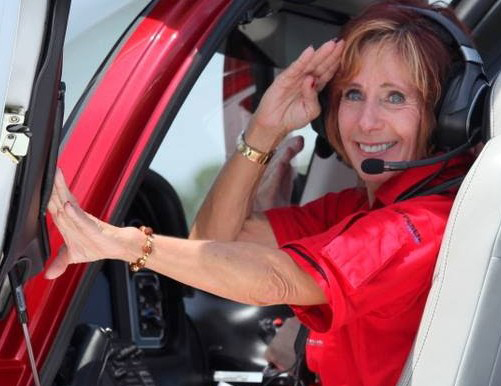By Judy Rice

Some pilots are ready to retire when the time comes. Others already have their eye on a second career. When the time comes, whether by choice or another reason, such as medical, have a plan. No matter your age, all pilots should think about what comes next when their flying career ends. Approximately 2,500 pilots retire each year in the U.S.
The Unspoken Question: “What is Happening to My Flying Skills?”
While cleaning the aircraft in the hangar, a pilot reflects on a recent landing. “What was that?” The question is not just about the landing but a deeper search into the changes they’re experiencing. Years of flying experience seem to be at odds with recent performances. This raises a critical question about aging in the aviation industry: “When do pilots have to consider retirement?”
The Age Factor in Aviation: Navigating Mandatory Retirement Policies
In the United States, commercial airline pilots face a mandatory retirement age of 65. The Federal Aviation Administration (FAA) set this maximum age, although they are currently considering raising it to 67. This regulation sparks debates in Congress and among pilots themselves. “When do I have to retire?” is a common question among senior pilots at major airlines like American and Delta. The rule, designed for safety, also acknowledges the physical and cognitive changes that come with age.
Early Signs: Recognizing the Need for Change
For some pilots, the realization that it’s time to consider retirement comes not from mandatory policies but from personal observations. Changes in focus, reaction times, and overall performance can be early signs. This is particularly true for pilots with backgrounds in the navy or other military branches, where the demands of flying are coupled with stringent physical requirements.
Seeking Guidance: The Role of Instructors and Peers
It is time for humility and transparency. After a session with a flight instructor, the pilot realizes that the loss of focus is not an isolated problem. The instructor, while knowledgeable, admits that teaching how to regain focus isn’t in his skillset. This moment of transparency is a turning point, prompting a deeper exploration into what retirement and its benefits could mean for a seasoned pilot.
The Emotional Aspect: Retirement as a New Chapter
Retirement is often seen as a milestone, marking the end of one phase and the beginning of another. For pilots, it’s a time to reflect on the gifts they’ve given through their service in the skies. Whether flying for commercial airlines or serving in the Navy or Air Force, the transition from actively flying to retiring is filled with mixed emotions. Some senior citizen pilots continue into their 80s maintaining excellent focus and good physical capabilities. Other pilots recognize at an earlier age that their capabilities have diminished.
The Retired Pilot: A Treasure Trove of Experience and Wisdom
Retired pilots hold a wealth of knowledge and experiences. They often become invaluable mentors for the younger generation, sharing insights about the aviation industry. Their stories are not just about flying but also about the life lessons learned at 30,000 feet. They guide aspiring pilots on when to embark on their careers and when to consider stepping back.
Mentorship: Giving Back to the Community
Retirement doesn’t mean the end of a pilot’s contribution to aviation. Many retired pilots find joy in engaging with local youth clubs, sharing their stories, and inspiring a new generation of aviators. Their mentorship is a gift to the community, helping to shape the future of aviation.
Benefits of Retirement: Finding New Horizons
Retirement opens up new opportunities for pilots. With more time available, they can pursue hobbies, spend time with family, or even get involved in aviation from a different perspective, such as advocacy or education. For many, the benefits of retirement include a chance to relax and enjoy life at a different pace.
Honoring the Legacy: Retirement Ceremonies and Celebrations
Airlines and other aviation organizations often honor their retiring pilots with ceremonies, acknowledging their contributions and celebrating their careers. These events are not just formalities but heartfelt acknowledgments of the pilots’ dedication to aviation and the safety of countless passengers. So, think about your retirement speech, and enjoy your party and retirement gifts.
Reflections on a Career: The Personal Journey of Every Pilot
Every pilot’s journey is unique. Some may be forced to retire early due to health issues, while others reach the mandatory retirement age and might leave before they are ready. Both situations can come with a sense of fulfillment. As they reflect on their careers, many pilots realize that retirement is not the end but a new beginning, filled with opportunities.
The Role of the FAA and Regulatory Bodies
The FAA and other regulatory bodies play a crucial role in ensuring the safety of aviation. Their policies, including the mandatory retirement age, are designed to maintain high safety standards while recognizing the human aspects of flying. These groups also provide resources and support for pilots transitioning into retirement.
Embracing the Future: The Next Chapter for Senior Pilots
As they step into retirement, senior pilots face a new horizon. Some may continue to be involved in aviation through consulting roles or volunteer work. Others might take this time to travel, enjoy leisure activities, or spend time with family. Regardless of the path chosen, the journey of a retired pilot is one of continued growth and exploration.



